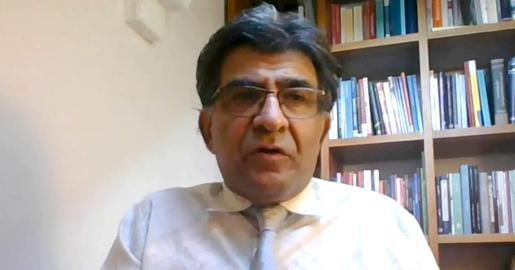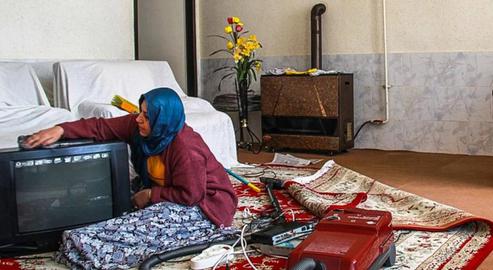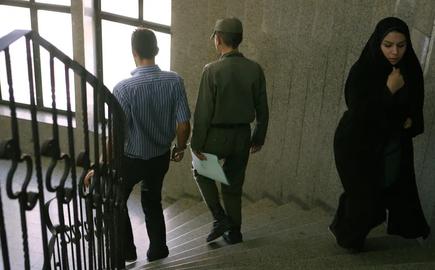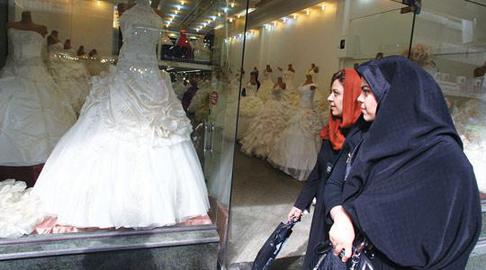“I was married to a man who worked in the same field as I did, and who shared my beliefs. But the wounds he inflicted on me when I filed for divorce and afterward are so deep, just thinking about them can paralyze me for days.”
Samira’s voice trembles as she recounts what happened to her. I apologize for having reopened the wounds. She laughs bitterly and says: “They never healed. My ex-husband never let them.
“One of the worst things was that he was a well-known figure, and he knew I’d feel it was beneath me to reveal the problems of our personal lives. He had no doubt my family and I would want things to end quietly. So he told all our friends and colleagues – a mishmash of truth and lies. After the divorce, whenever I joined a gathering, I’d find rumors about me doing the rounds. It affected my life so badly I had to turn my back on the job and the city that I loved, and go far away for a long time to forget.”
Despite all the efforts of women’s rights activists and others, Iranian society still looks down on divorcées. Many women who’ve gone through the process prefer not to talk about it at all. Samira’s story is a case in point: up to this day, she says, her ex-husband, who has since remarried and is now a father, hasn’t stopped tormenting her.
“Perhaps it was because after the divorce I was unbelievably happy,” she reflects. “And he’d counted on my remaining silent. For 10 years I did, and at last, at some gathering, I felt able to respond to the rumors that had isolated me. After that, my ex-colleagues showed me empathy. But for 10 years it was hard. Very hard.”
IranWire also spoke to Leila, a 42-year-old divorcée with a teenage daughter. Four years ago she left a violent marriage to a drug-addicted husband behind, fully aware that nobody in the family would back her decision. “I wasn’t financially independent,” she says, “and had to return to my parents’ home.
“There, our movements were tightly controlled. ‘Where are you going? With whom are you going out? Why are you going out? Why are you dressed like this? Why? Why? Why?’ The ‘whys’ were killing me; everyone knew my ex was a heavy drug addict and I’d tried for years to get him to quit and save our marriage. It seems that wasn’t enough.”
Even for the Empowered, Divorce in Iran Changes Everything
Ms. Ashtari is a lawyer and financially independent, and secured her husband’s consent for their divorce so as not to waste time negotiating the maze of Iran’s civil courts. “I’d set very stringent conditions in our marriage contract,” she tells IranWire, “and my ex-husband did not want to trifle with me. Our divorce was very civilized.
“But after the divorce, strange things happened. For however long I think about it, I have to assume the only reason was the divorce because nothing else had changed.” A number of her married friends who regularly socialized with her before suddenly turned their backs on her, in Ms. Ashtari’s words, “as though I posed a danger to them.
“I’d always had a lot of friends of both sexes, both before and after I was married. But after the divorce many of the same men thought they could ask me for sex. This bothered me a lot.” On the other hand, she adds, “While men thought my divorce gave them licence to solicit sex, women took it for granted that sex had gone out of my life.
“Once, when I had a urinary tract infection, I consulted a gynecologist friend. In a very serious tone, she told me that my problem was not a certain bacteria ‘because you no longer have sex’: as if a divorced woman does not only leave her husband behind, but her needs as well.”
Academic: We Need to Look at Women-Initiated Divorces Differently
Mehrdad Darvishpour is a Sweden-based sociologist studying the impact of divorce on the lives of women. Women in Iran often take the initiative to file for divorce, he says, as a result of becoming more self-aware, more financially independent or more educated over time. But these women are also more likely to suffer harassment from their former spouses.
“One of the reasons for this is patriarchal values,” Darvishpour told IranWire. “Losing a wife offends their masculine ‘authority’. So even after they’ve started a new life, they’ll continue trying to isolate their ex.
“Another reason is not wanting to be seen as having ‘lost’. These men generally try to bring back their wives, and if they can’t succeed, they resort to the worst possible slanders. Or they’ll try to restore their lost male authority through verbal, mental, physical, even sexual violence. They will stop at nothing.”
The stigma of divorce, Darvishpour points out, goes far beyond the borders of Iran. “The change of behavior [towards a divorced woman] on the part of relatives and associates is because they all believe the woman is the guilty party. In a patriarchal mindset, family is a sacred institution – one that the woman has defiled by getting a divorce. She is, therefore, a threat to the sanctity of family.” Women, he adds, can also absorb and refract these skewed values: “Instead of sisterly solidarity with the divorcée, they further isolate her, because they fear she might attract their husbands.”
In fact, Darvishpour’s research suggests that in the long run, divorces initiated by women contribute to gender equality. “When women leave unhealthy relationships, the men have two choices. One is to repeat the same pattern of behavior.
“Perhaps you’ve heard the story of the nobleman who fell into a well. A passerby shouted to him, ‘I’ll throw down the rope. Grasp it and I’ll pull you up.’ And the nobleman shouted back, ‘I’m busy standing with my arms up.’ So he stayed at the bottom of the well because he wanted to preserve his commanding position.
“Some men, however, learn how to adapt. They learn that in a healthy marriage, both sides must be satisfied. And women must learn that the first step in stopping the vicious circle is to raise their voices.”
visit the accountability section
In this section of Iran Wire, you can contact the officials and launch your campaign for various problems

























comments